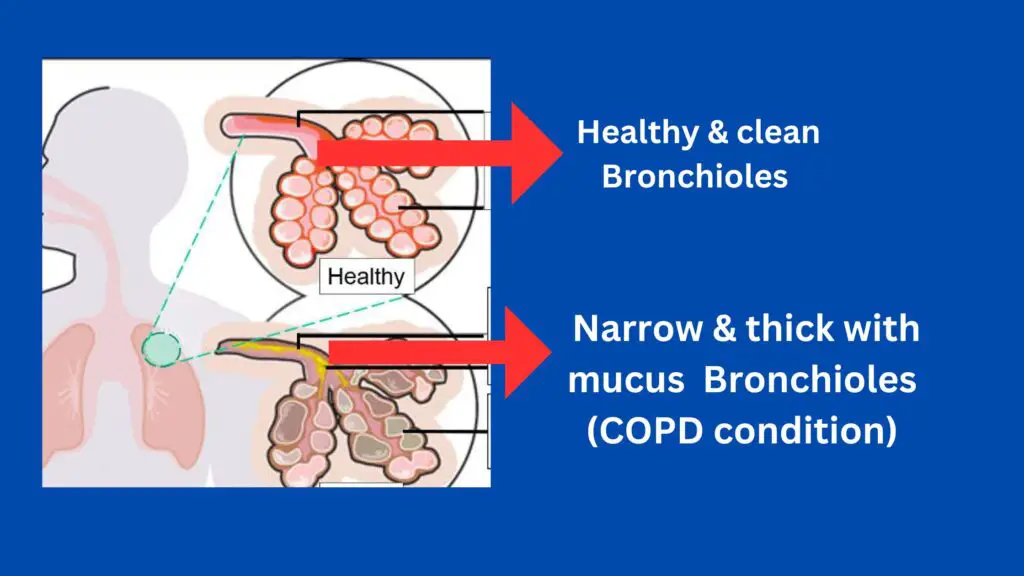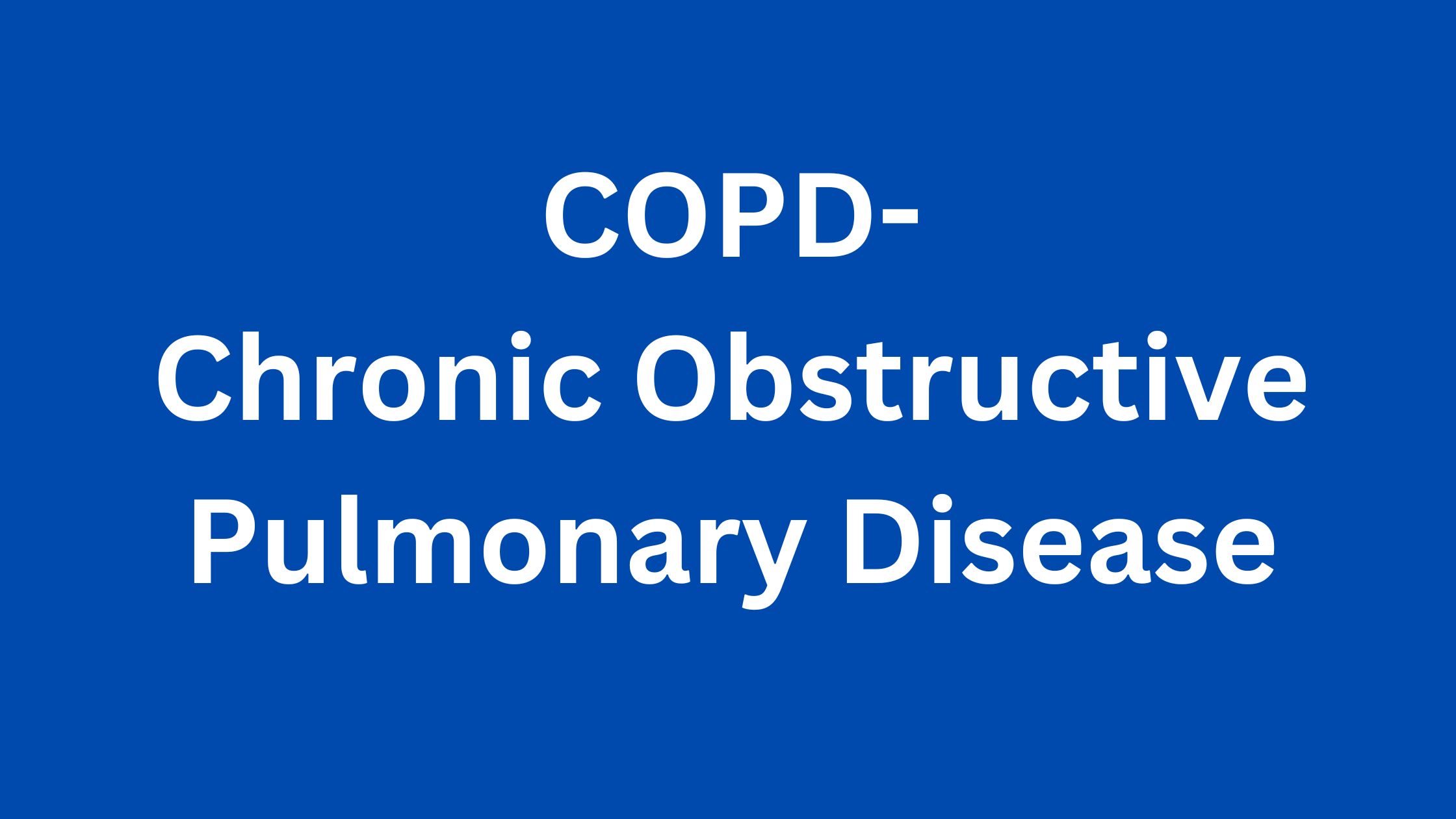COPD severity is due to chronic obstructive pulmonary disease (COPD) or sudden worsening of COPD symptoms, such as cough, shortness of breath, wheezing and chest tightness. These can be triggered by many other reasons including infection, air pollution and smoking. Exacerbation of COPD can lead to hospitalization and can be life-threatening in particularly severe cases. COPD ICD 10 is J44.9 for unspecified.
Early detection and management of the severity are essential to prevent lung damage and improve quality of life. Patients with COPD should work closely with their healthcare providers to develop an individualized plan to manage exacerbations.
Table of Contents
- COPD ICD 10 List:
- Causes of COPD exacerbation
- Which part of the body is affected by the COPD exacerbation ?
- Symptoms of COPD exacerbation
- How to protect yourself from COPD exacerbation?
- FAQs
- Conclusion:
- Related Articles:
COPD ICD 10 List:
The COPD ICD 10 code is J44.9 for unspecified and all other related ICd 10 codes for COPD is as mentioned below,
| ICD Codes List | ICD Description |
| J42 | Unspecified chronic bronchitis |
| J43 | Emphysema |
| J43.0 | Unilateral pulmonary emphysema [MacLeod’s syndrome] |
| J43.1 | Panlobular emphysema |
| J43.2 | Centrilobular emphysema |
| J43.8 | Other emphysema |
| J43.9 | Emphysema, unspecified |
| J44 | Other chronic obstructive pulmonary disease |
| J44.0 | Chronic obstructive pulmonary disease with (acute) lower respiratory infection |
| J44.1 | Chronic obstructive pulmonary disease with (acute) exacerbation |
| J44.9 | Chronic obstructive pulmonary disease, unspecified |
| J45 | Asthma |
| J45.2 | Mild intermittent asthma |
| J45.20 | Uncomplicated |
| J45.21 | With (acute) exacerbation |
| J45.22 | With status asthmaticus |
| J45.3 | Mild persistent asthma |
| J45.30 | Uncomplicated |
| J45.31 | With (acute) exacerbation |
| J45.32 | With status asthmaticus |
| J45.4 | Moderate persistent asthma |
Causes of COPD exacerbation
Exacerbation of chronic obstructive pulmonary disease (COPD) can be caused by various factors, these include:-
● The most common causes of COPD exacerbation include breathing infections, viral and bacterial infections.
● Additionally, exposure to air pollution, such as smog or fine particles, can irritate the lungs and worsen COPD.
● Heavy smoking and exposure to secondhand smoke can also worsen COPD symptoms and increase the severity of COPD.
● Non-use of prescribed inhalers or poor adherence to treatment plans can increase your risk of COPD.
● There is also a solid reason for this that a change in weather or temperature can affect breathing and also increase arousal.
● Emotional stress or anxiety also increases the rate of breathing, causing shortness of breath.
COPD stands for Chronic Obstructive Pulmonary Disease, it is a lung disease, The list of ICD 10 of COPD and adjacent codes are as under
Which part of the body is affected by the COPD exacerbation ?
COPD (Chronic Obstructive Pulmonary Disease) is a chronic lung disease that severely affects the breathing system, particularly the airways and alveoli (air sacs) of the lungs. During COPD, the airways become inflamed and narrow, making it difficult to breathe. Because of this, the lungs cannot deliver enough oxygen to the body’s tissues, which can lead to symptoms such as shortness of breath, coughing, and wheezing.Severe COPD produces systemic effects throughout the body, such as increased heart rate and loss of appetite.

Symptoms of COPD exacerbation
● Shortness of breath: Shortness of breath is a typical symptom of COPD, and it may worsen during an exacerbation.
● Cough:- Cough can also cause a complaint of COPD exacerbation. During a COPD exacerbation, the cough may increase and mucus may also increase.
● Wheezing:- Wheezing is a high-pitched whistling sound during breathing, and can be caused by swelling or narrowing of the airways.
● Chest tightness:- Due to exacerbation of COPD, pressure and tightness starts to be felt in the chest, due to which it becomes difficult to take deep and long breaths.
● Lips and fingernails turn blue due to lack of oxygen during COPD exacerbation.
How to protect yourself from COPD exacerbation?
To avoid Chronic Obstructive Pulmonary Disease (COPD), you should stay away from stress and emotional worries, this is one of the major causes of COPD. We have explained below how you can protect yourself from COPD exacerbation.
● If you smoke, quit immediately and avoid secondhand smoke.
● Keep taking flu and pneumonia vaccines from time to time.
● Monitor your symptoms and keep taking the medicines prescribed by your doctor.
● Avoid exposure to air pollutants and irritants, such as dust, chemicals and smoke.
● Do light exercise regularly and make your lungs strong.
● Eat a balanced and healthy diet.
●Manage stress and spend time with friends and family.
FAQs
Ans. Medications and techniques such as bronchodilators (such as albuterol and ipratropium), corticosteroids (such as prednisone), antibiotics (such as azithromycin or doxycycline), and oxygen therapy are commonly used to treat COPD exacerbations. However, treatment may vary depending on the severity of the condition and individual factors of the patient.
Ans. Yes, there is every possibility that COPD overdose will lead to death. Because during an exacerbation, the airways in the lungs swell, causing difficulty in breathing and sometimes we cannot breathe, due to which the oxygen level decreases.Additionally, in some severe cases, it can lead to respiratory failure, which can be fatal. People with COPD are at higher risk of exacerbations, especially those who smoke or have other underlying health conditions.
Ans. The length of time it takes to recover for a COPD exacerbation depends on the severity of the episode, the person’s overall health, and the effectiveness of treatment. Mild symptoms clear up within a few days, while more severe cases may take weeks or months to fully recover. But a good treatment and following it can give you comparatively quick relief.
Conclusion:
COPD exacerbation is a disease related to the lungs, which can be accompanied by common symptoms like infection. Thus, through today’s article, we have tried to share all kinds of information related to COPD exacerbation with you. In which what is COPD exacerbation, what causes it, and what are its symptoms etc. Briefly put, a COPD exacerbation refers to a sudden worsening of symptoms in a person with chronic obstructive pulmonary disease (COPD). It shows symptoms like coughing, wheezing, shortness of breath, increased sputum production and chest tightness. We hope that you have liked this article of ours, if you have any kind of query then definitely ask in the comment box.


